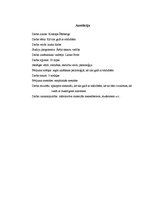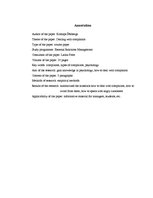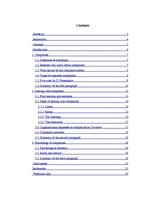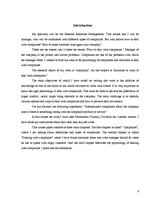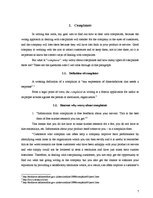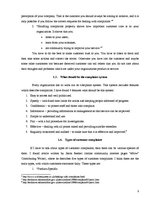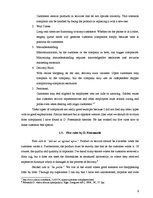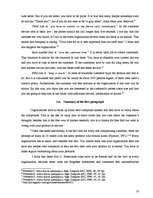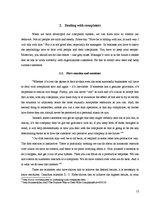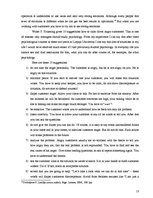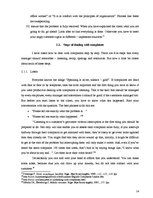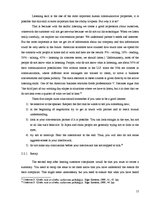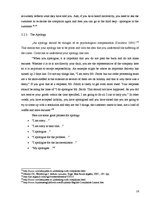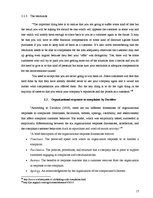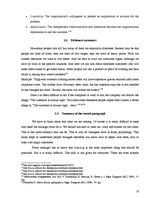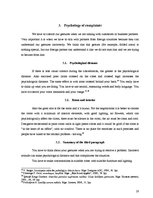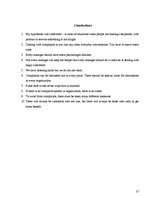-
Dealing with Complains
| Nr. | Chapter | Page. |
| Anotācija | 3 | |
| Annotation | 4 | |
| Contents | 5 | |
| Introduction | 6 | |
| 1. | Complaints | 7 |
| 1.1. | Definition of complaint | 7 |
| 1.2. | Reasons why worry about complaints | 7 |
| 1.3. | What should be the complaint system | 8 |
| 1.4. | Types of customer complaints | 8 |
| 1.5. | Five rules by D. Freemantle | 9 |
| 1.6. | Summary of the first paragraph | 10 |
| 2. | Dealing with complaints | 12 |
| 2.1. | First reaction and emotions | 12 |
| 2.2. | Steps of dealing with complaints | 14 |
| 2.2.1. | Listen | 14 |
| 2.2.2. | Recap | 16 |
| 2.2.3. | The Apology | 16 |
| 2.2.4. | The resolution | 17 |
| 2.3. | Organizational responses to complaints by Davidow | 17 |
| 2.4. | Dishonest customers | 18 |
| 2.5. | Summary of the second paragraph | 18 |
| 3. | Psychology of complaints | 20 |
| 3.1. | Psychological distance | 20 |
| 3.2. | Room and interior | 20 |
| 3.3. | Summary of the third paragraph | 20 |
| Conclusions | 21 | |
| References | 22 |
3.2. Room and interior
Also the great role is for the room and it`s layout. For the negotiations it is better to choose the room with a minimum of interior elements, with good lighting, no flowers, which can psychologically affect the client, there must be silence in the room, the air must be clean and cool. Designers recommend to paint room walls in light pastel colors and it would be good if the room is “in the heart of an office", with no window. There is no place for emotions in such premises and people have tuned to the rational problem - solving.39
3.3. Summary of the third paragraph
You have to think about your gestures when you are trying to resolve a problem. Incorrect attitude can make psychological distance and this complicates the situation
You have to make conversations in suitable room with suitable furniture and lighting.
Conclusions
1. My hypothesis was confirmed – in most of situations when people are making complaints, with product or service something is not alright.
2. Dealing with complaints is not like any other everyday conversation. You have to know some rules.
3. Every manager should have some psychologist abilities.
4. Not every manager can keep his temper but every manager should do it when he is dealing with angry customers.
5. We have listening skills but we do not use them.
6. Complaints can be discussed not in every place. There should be special room for discussions in every organization.
7. Polite staff is one of the ways how to succeed.
8. If there is no complaint system in organization, there is no client.
9. To avoid from complaints, there must be taken many different measures.
10. There will always be customers who are true, but there will always be those who want to get some benefit.
…
Kā tikt galā ar sūdzībām Šajā kursa darbā apskatīti dažādi veidi, kā tikt galā ar sūdzībām, sūdzību veidi.



